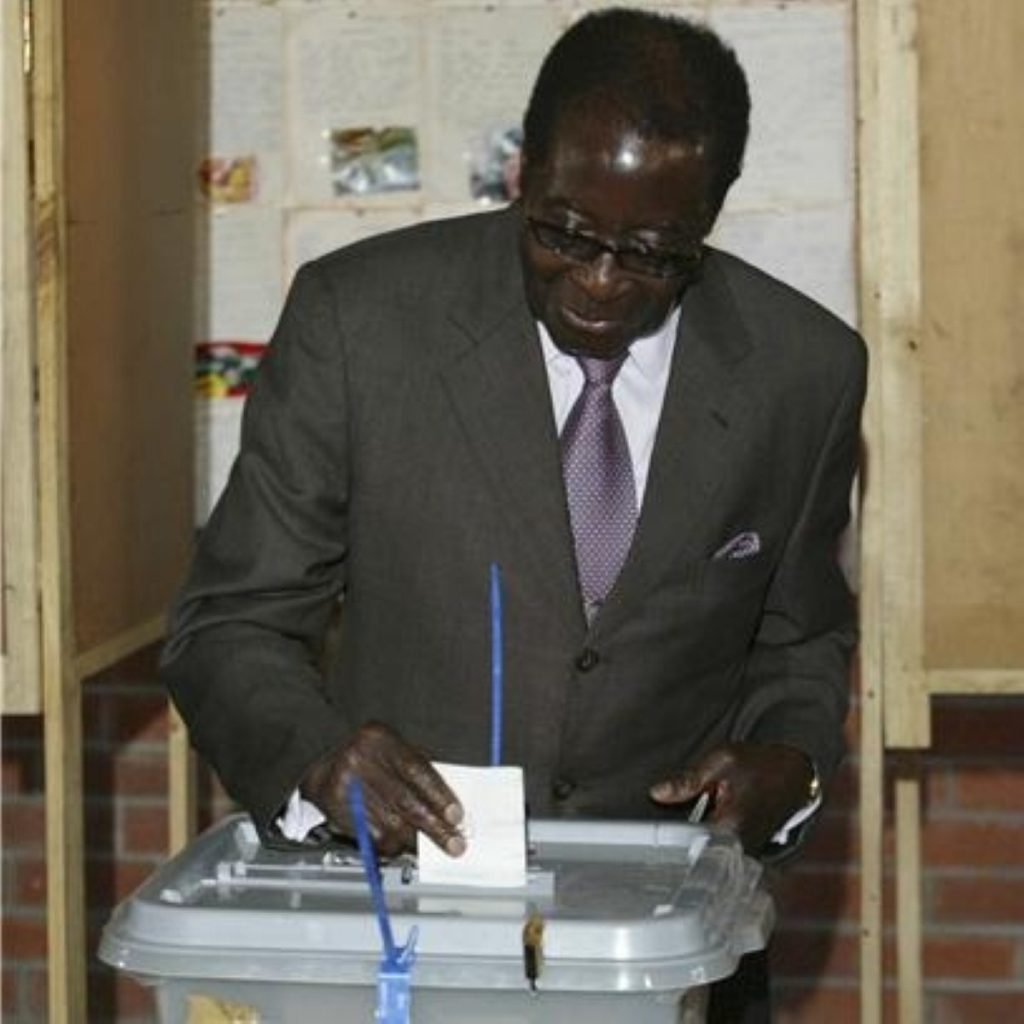Moscow, Beijing condemned over Zimbabwe stance
The UK has said Russia and China’s vetoing of United Nations sanctions against Robert Mugabe was “incomprehensible”.
A key arms embargo, travel and financial restrictions proposed by the UK and US against the Zimbabwean president and 13 members of his inner circle was rejected this weekend.
While nine of the 15-member security council voted for the resolution, permanent members Russia and China used their veto to halt the sanctions.
The vote is proving embarrassing for Gordon Brown, who days earlier told MPs real progress had been achieved on Zimbabwe at the G8 summit, where Russian president Dmitri Medvedev appeared to give his backing for financial measures against the Zimbabwean regime.


Zimbabwe has had the world’s eyes turned towards it since the inconclusive presidential election of March 29th.
Since then the country’s leading opposition party claims to have been the victim of a brutal government campaign of violence and intimidation, leading to its leader Morgan Tsvangirai pulling out of the presidential runoff vote and allowing Mr Mugabe to stand unopposed and be re-elected.
Writing in his Foreign Office blog, foreign secretary David Miliband elaborated on his initial comments dubbing the Russian and Chinese stance as “incomprehensible”.
He asked: “Since when does pressure on a regime that has been flagrant in its abuse of human rights and democratic standards undermine mediation?
“Surely it brings home much more clearly that the world is determined to tilt the balance away from a government that has forfeited international respect?”
Mr Miliband continued to write the crisis in Zimbabwe had gone “way beyond” a national issue, with Moscow and Beijing expressing an unwillingness to intervene.
The UK minister said three million refuges in Zimbabwe had created a humanitarian crisis.
“The Russian and Chinese vetoes have shielded Robert Mugabe and 13 of his top supporters from international pressure,” he wrote.
“Meanwhile the governments of western and other democracies should have no regrets about bringing into the open a vital debate.
“The alternative is for the threat of veto to mean we all clam up and pretend that there is no disagreement. That is not real diplomacy.”
On Saturday Mr Brown is due to hold emergency talks with European leaders in Paris to maintain pressure on Mr Mugabe.

